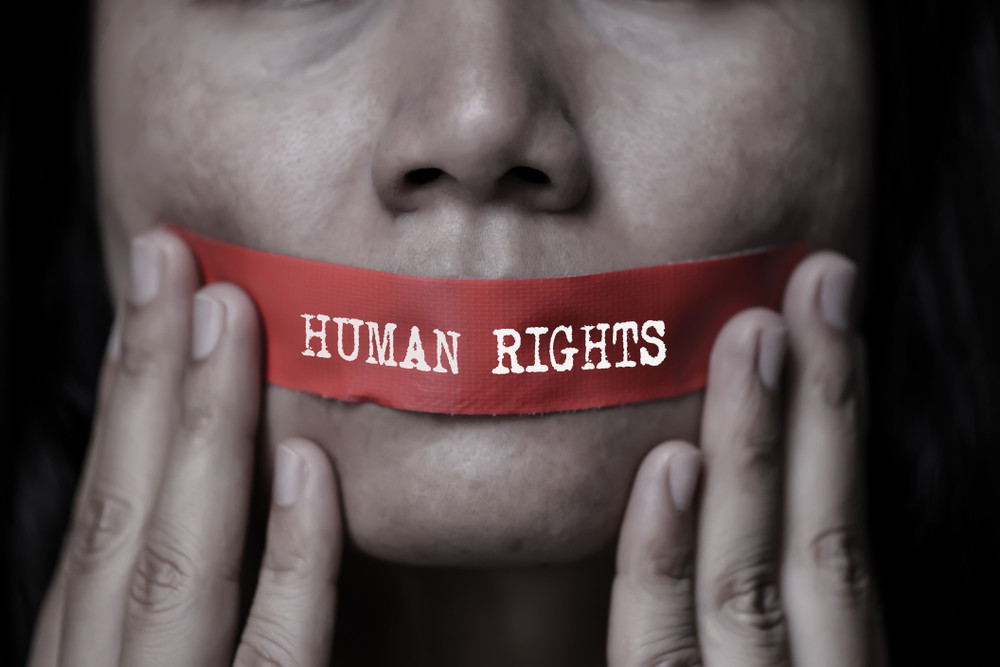Popular Reads
Top Results
Can't find what you're looking for?
View all search resultsPopular Reads
Top Results
Can't find what you're looking for?
View all search resultsFree speech under threat in Jokowi’s first year
Change text size
Gift Premium Articles
to Anyone
T
he first year of President Joko “Jokowi” Widodo’s second and final term has been characterized by a shrinking space for freedom of expression, the National Commission on Human Rights (Komnas HAM) and rights activists have claimed.
Komnas HAM commissioner Amiruddin Al-Rahab said the trend was reflected in the many complaints the government-sanctioned independent body had received since late last year.
“Last week, Komnas HAM issued a statement about freedom of expression that appeared to be suppressed. That statement was based on numerous complaints filed with Komnas HAM,” Amiruddin said in a recent webinar. He urged the government to protect free speech, saying this was a key indicator of the quality of democracy in the country.
A recent survey by pollster Indikator Politik Indonesia found that 69.6 percent of respondents said they felt more afraid than in the past to publicly voice their opinions on current issues, while 73.8 percent of respondents found it more difficult to hold public rallies and demonstrations.
The survey, conducted between Sept. 24 and 30 involving 1,200 people across Indonesia, also found that 36 percent of respondents said they believed Indonesia had become “less democratic”. The survey took place just before nationwide protests against the Job Creation Law, which was passed by the House of Representatives on Oct. 5 despite stiff public opposition.
Rights group the Commission for Missing Persons and Victims of Violence (Kontras) has received some 1,500 complaints about alleged violence by security forces during waves of demonstrations between Oct. 6 and 8.
Kontras deputy coordinator Feri Kusuma said the repressive approach was similar to the tactics used by security forces during last year’s mass rallies opposing revisions to the Corruption Eradication Commission (KPK) Law and the Criminal Code. The protests lasted less than a month before Jokowi started his second presidential term in October 2019.
Feri said the declining quality of democracy could be attributed in part to the inability of the country to make a clean break from its authoritarian past.
“One of the problems related to the shrinking democratic space today is because we cannot break the chain of impunity. Actors that used to be anticriticism and authoritarian in the New Order regime are accommodated in the President Jokowi administration,” he said.
Institute for Policy Research and Advocacy (ELSAM) researcher Blandina Lintang Setianti meanwhile said the Electronic Information and Transactions (ITE) Law greatly limited free speech on the internet. It contains provisions against hate speech and defamation that are often used to silence critics.
“[The provisions] create a chilling effect and people become afraid of expressing their opinions,” Blandina said, adding that the law was “a form of democratic backsliding in cyberspace”.
The recent arrests of eight people affiliated with the Save Indonesia Coalition (KAMI), a group known for its vociferous criticisms of the Jokowi administration, on allegations of spreading hate speech and violating the ITE Law are widely seen as an example of how authorities have attempted to stifle criticism.
Blandina also described the government’s decision to cut internet access in Papua last year during heightened security tensions caused by antiracism protests as a form of “digital repression”.
Government officials did not immediately respond to The Jakarta Post’s request for comment.
However, Presidential spokesperson Fadjroel Rachman said during a local talk show on Thursday evening that the government reaffirmed the rights of its citizens to express their opinions.
“Do not be afraid to take to the streets, do not be afraid to express your opinions. You are protected by the 1945 Constitution and Law No. 9/1998 [on freedom to express opinions in public space],” said Fadjroel during the televised event. “So, don’t be afraid.”
He also reaffirmed the Jokowi administration’s adherence to the democratic principles enshrined in the 1945 Constitution.
Gadjah Mada University lecturer Najib Azca said Jokowi’s narrow focus on an economic agenda – described by scholar Eve Warburton of the National University of Singapore’s Asia Research Institute as “neo-developmentalism” – had sidelined other issues, including human rights and democracy.
“This is probably one of Jokowi’s developmental goals: To guide Indonesia to be one of the largest economies by 2040, and the omnibus [law on job creation] is an effort to help Indonesia escape the middle-income trap,” Najib said.
“This has quite severe implications for human rights and democracy, just like what we have observed during the widespread protests against the Job Creation Law and the repressive actions in response [to the protests].”










